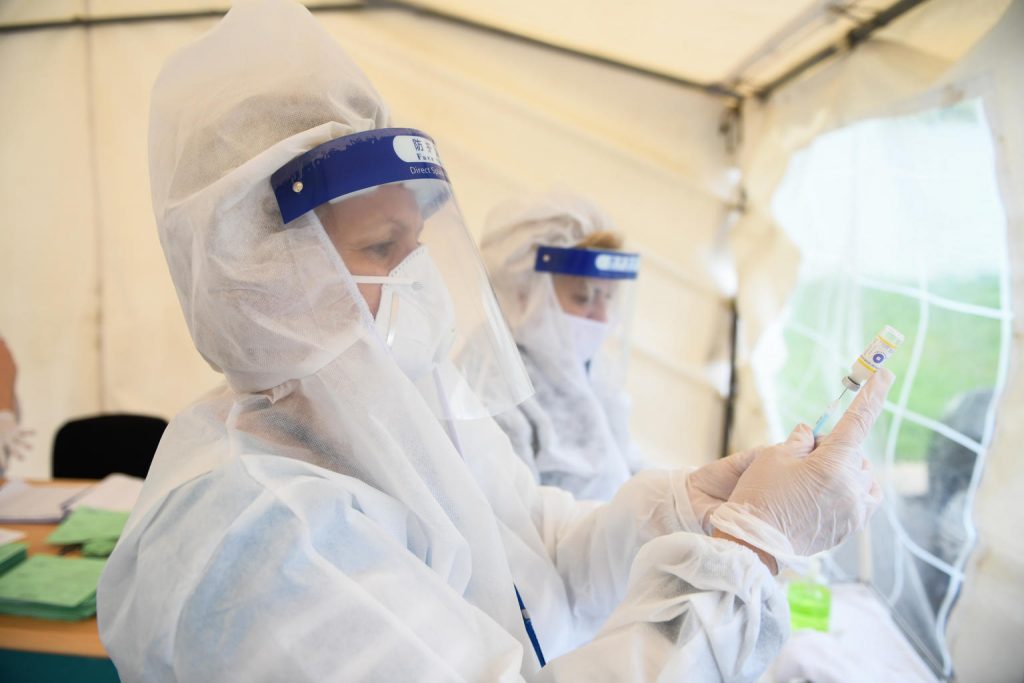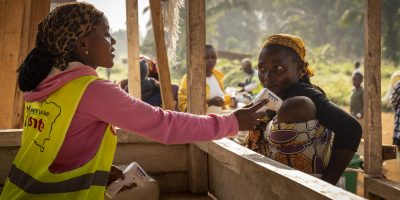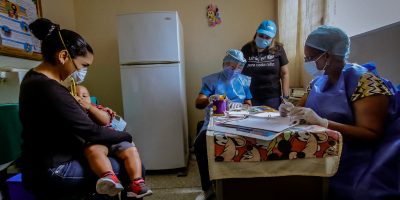As the global community celebrates the first person in the world receiving the Pfizer vaccine, we must not lose sight of the task ahead. While this news rightly represents the proverbial light at the end of the tunnel, those of us who have studied the political dynamics of the pandemic would like to issue caution.
The end of this pandemic hinges on the success of any COVID-19 vaccine, evoking images from the final scenes of Contagion. In the non-Hollywood version, this will be much more complicated as the success of the vaccine will require populations accepting and having confidence in it.
We know from past experience that this has been a challenge. To complicate this, many of our world’s governments have not inspired public confidence in their handling of this pandemic. Indeed, the pandemic has been negatively politicised, militarised, and weaponised to advance particular political agendas. There has been confusion and opacity to decision-making processes. This must immediately end, and we must instead advance a better, or “good politics,” in order to survive this plague.
Emerging data from around the world paint an alarming picture. In a recent study of 19 countries, the proportion of people reporting they would accept a ‘proven, safe and effective vaccine’ ranged from nearly 90% in China to only 55% in Russia. In another study, 36% and 51% of survey respondents in the UK and US respectively reported they were ‘uncertain’ or unlikely to be vaccinated. While these numbers will not necessarily correlate with actual vaccine uptake, this is an area of concern given that 80-90% of a population will require vaccination.
Despite early reports of COVID-19 vaccine safety, there is also the perception that they may not be safe. These concerns do not solely exist within fringe ‘anti-vaxxer’ circles. There are genuine questions about efficacy. Part of this is because they have been developed at a breakneck speed; long-term effects have not – and will not be able to be evaluated – until the vaccines have been in circulation for some time. New research highlights the need for governments and public health actors must redouble efforts to mitigate this anxiety around COVID-19 vaccines.
We know from past work that “vaccine hesitancy” is just about as old as vaccines. In the 19th century, the Anti-Vaccination League emerged in the UK. During the colonial era, colonial authorities in some African countries forced vaccination onto populations, provoking resistance. Past vaccination campaigns have mirrored or actively involved military efforts, which is particularly problematic in autocratic states or countries where militaries are associated with repression and violence against citizens. While this demonstrates the wide spectrum of attitudes under vaccine hesitancy, the political dimension to hesitancy cannot be understated.
While the WHO’s ‘infodemiology’ approach and focus on rumours, misinformation, disinformation, and conspiracy theories is laudable, it does not go far enough to explain the underlying relations that drive vaccine hesitancy. As Heidi Larson argues in her new book, Stuck, rumours require fertile ground to take hold.
Historical and political experiences of neglect, discrimination, colonisation, and abuse create the conditions in which misinformation can gain traction and become ‘plausible.’ Fundamentally, this is an issue of trust: trust in the state and trust in the public health response. This is about eroding state-citizen relations which have been further strained and laid bare by the Covid-19 pandemic. There is a scarcity of belief that governments have citizens’ best interests at heart.
As seen in reports of discontent from around the globe, many governments have bankrupted public trust. Chilean citizens recently voted to rewrite the country’s constitution seen as the root cause of the country’s social and economic inequalities. The #EndSARS protests in Nigeria emerged as an outcry over SARS police brutality but evolved into a larger protest over bad governance.
In India, Prime Minister Modi’s government has used COVID-19 emergency laws to arrest demonstrators and advance a Hindu nationalist agenda. In the United Kingdom, government credibility in the response was further compromised when reports surfaced of payments to private companies with connections to the ruling party for Covid-19 work. And then we have the situation in the United States.
A vaccine will be rolled out against this backdrop of political fracturing, rising socioeconomic inequalities, and citizen dissent. While we will never be able to completely remove politics from public health, we can promote a better, or ‘good politics,’ one that is human-centred and restores public trust.
As political leaders and health actors seek to navigate this next pathway within the pandemics, we would like to see citizen representatives from across society involved in designing the vaccine deployment. The pandemic presents a grand challenge, but it can also present an opportunity to build a better politics and restore public trust in our institutions.





